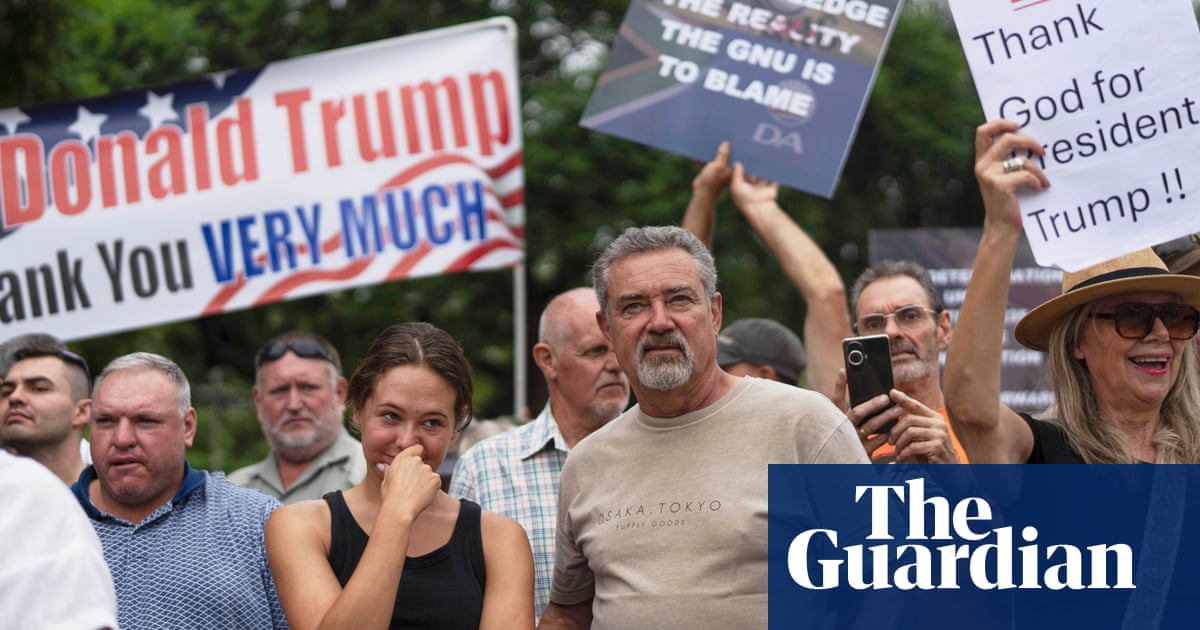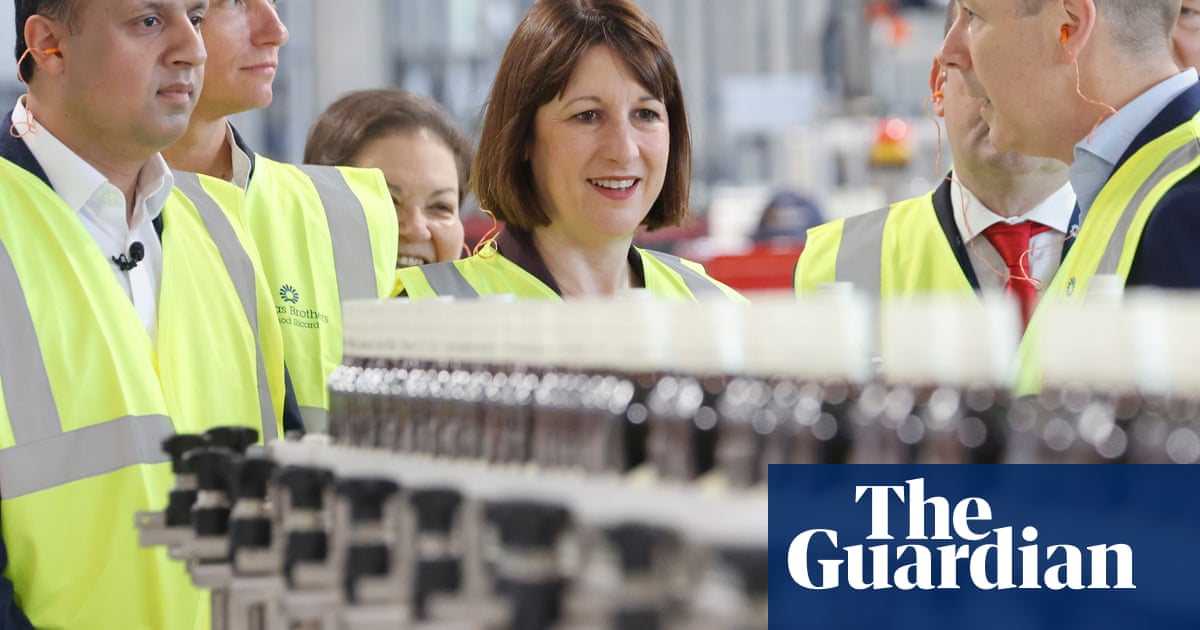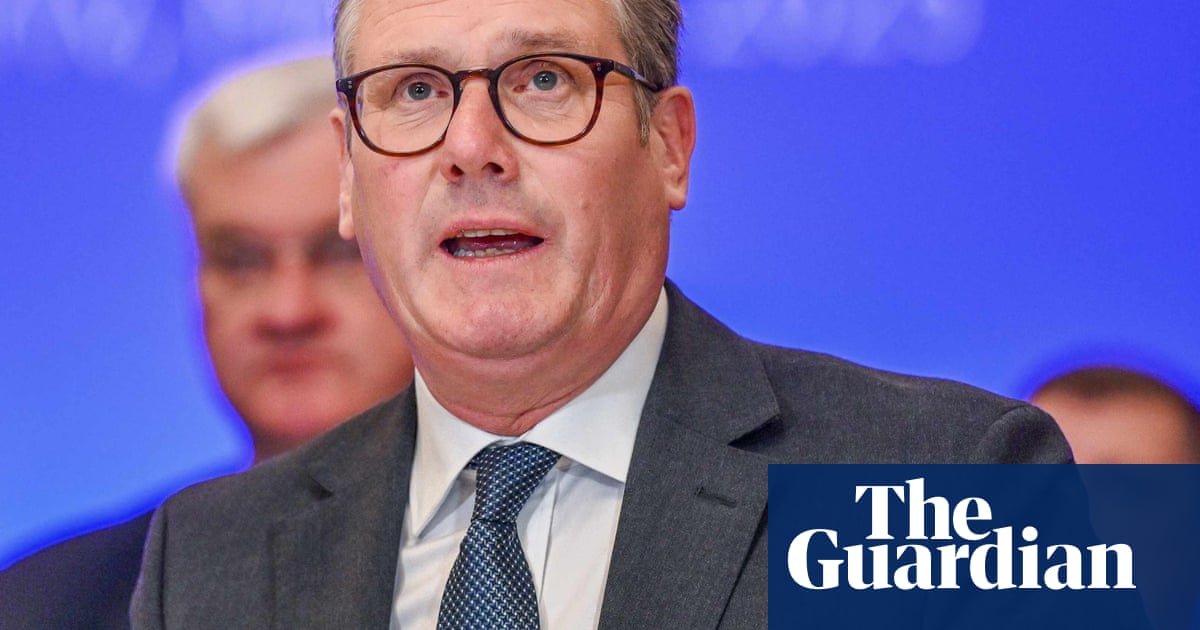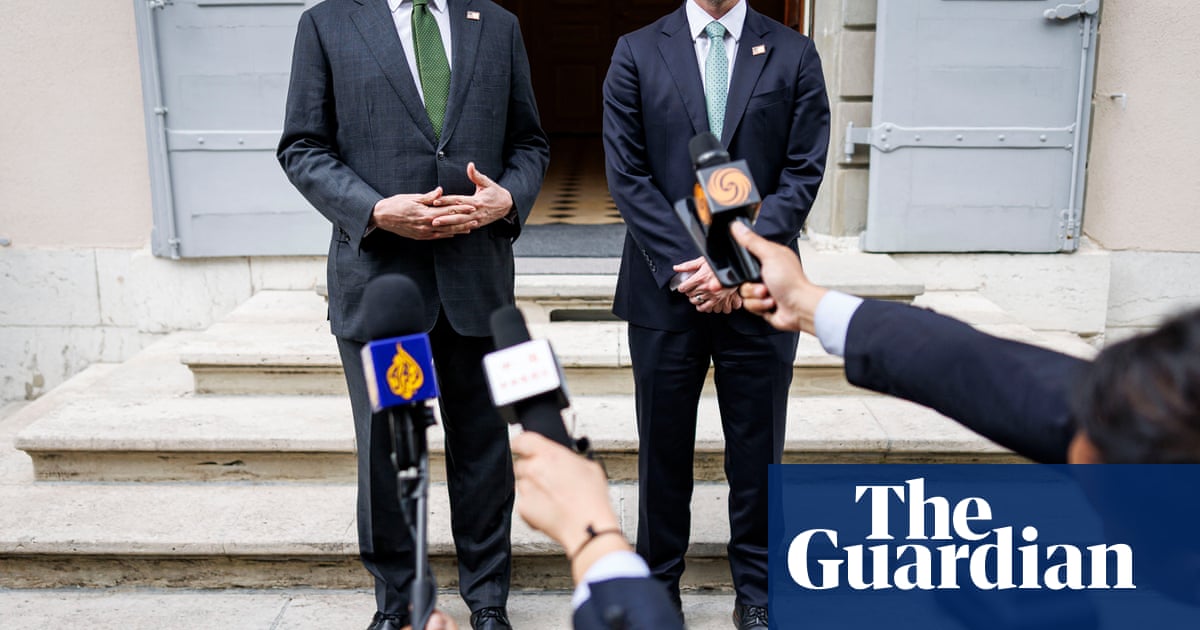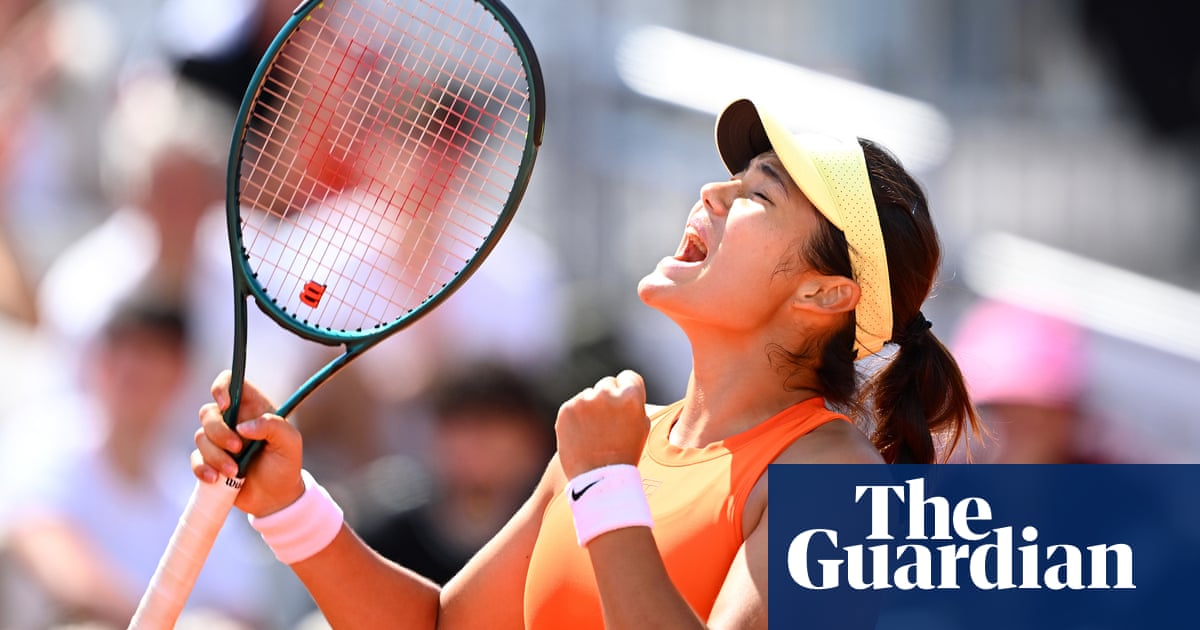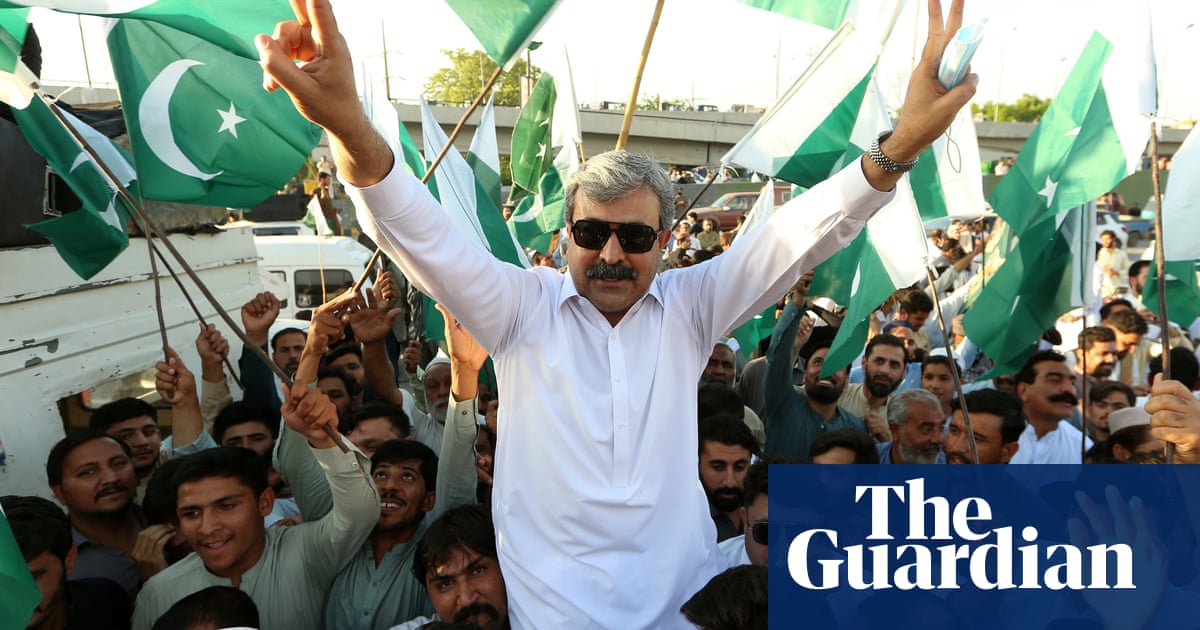Donald Trump is accustomed to getting his own way. That could change next week when he’s confronted by the mess he’s making in the Middle East. As he begins a three-day trip to Saudi Arabia, the UAE and Qatar, the US president is promising great things. As ever, he’s delusional. The reality is that reckless, incoherent and neglectful US regional policies are failing across the board. A fundamental course correction is urgently required.
Gulf leaders have the leverage to set Trump straight, if they decide to use it. He relies on them to an unprecedented degree – far more than on Europe – as diplomatic interlocutors, security partners and financial backers. His approach to Palestine, which is on the brink of a second Nakba (catastrophe), is a mix of prejudice, cruelty and sheer ignorance. Without Arab help, the US and Israel may remain trapped indefinitely in a destructive policy cul-de-sac.
Trump knows he cannot afford to ignore the views of the Saudi crown prince, Mohammed bin Salman, and his Gulf counterparts on Gaza, Syria and Yemen. They oppose war with Iran, as previously threatened by the US and Israel. Trump needs them as allies in his trade and tariff feud with China. Gulf diplomats hosted the Ukraine-Russia peace talks he personally promoted. He is desperate to keep oil prices low. And he covets multibillion dollar Middle East investment deals and arms sales.
Yet for Gulf support, there is a price to pay. Take Trump’s hope of extending the so-called Abraham accords by normalising Saudi-Israeli relations. Whatever Trump says, Salman vows this cannot happen without guaranteed progress towards an independent Palestinian state – a prospect Israel’s government abhors. Salman has described the post-7 October killing of more than 52,000 Palestinians in Gaza as “genocide”. In Riyadh, Trump will face intense pressure to end Israel’s blockade and reinstate the ceasefire.
US-Israel relations are growing increasingly strained, with Trump so far declining invitations to add Jerusalem to his trip. Careless of the impact on surviving Israeli hostages held by Hamas, Benjamin Netanyahu, Israel’s prime minister, and his far-right allies plan a long-term military occupation of Gaza and mass expulsions of Palestinians. Yet while Trump was supportive two months ago, talking foolishly about building a “Riviera of the Middle East”, he seems belatedly to have realised peace does not lie that way.
Netanyahu, who continues to urge the US to join Israel in military action against Iran this year, was caught by surprise by Trump’s sudden announcement last month of talks with Tehran about its nuclear programme. A similarly abrupt Trump U-turn last week, ending US airstrikes on Yemen, also blindsided Israel, which continues to bomb Houthi fighters. Both policy shifts, and Trump’s changing tone on Gaza, follow effective Gulf lobbying.
Arab leaders, backed by Turkey, also want Trump to curb Israel’s military operations in Lebanon and especially in Syria, which it has repeatedly attacked since Bashar al-Assad’s dictatorship fell to Islamist insurgents in December. All six Gulf Cooperation Council members favour engagement with Syria’s interim president, Ahmed al-Sharaa, and his coalition government.
Sharaa says he does not want a fight with Israel and is focused on reuniting his shattered country. His groundbreaking visits to Saudi Arabia, the UAE and Qatar produced generous offers of reconstruction aid. Yet Trump, unlike Britain and the EU, has refused to relax Assad-era sanctions. It’s a big mistake that handicaps Syrians’ hopes of a fresh start – and could let Iran and Russia back in. A democratic, pro-western Syria is a great prize. Right now, it is beginning to look like a missed opportunity.
If Trump wants to be sure of Gulf support for his wider agenda, he must give something significant back. That could be a revival of the 2015 US-Europe nuclear pact with Iran (which he witlessly reneged on in 2018) – while ensuring Netanyahu and Tehran hardliners do not start another war. Trump may very well take the plunge. He claims he’s the “peace president”. This is a chance to prove it.
A more enlightened US approach to Gaza and Syria could also serve other Trump objectives: lower energy prices and enhanced Gulf investment in US businesses and jobs. Saudi attitudes are pivotal to both. Sustained price-cuts at the gas pump could placate disappointed Trump voters and help tame US inflation. In January, Salman floated a $600bn (£450bn), four-year US investment deal. More may follow.
Might this big fat carrot be the main reason Trump chose Saudi Arabia for his first post-inauguration state visit, as he did in 2017? A mooted US-Saudi security pact is an additional lure, with an initial $100bn weapons package for Riyadh already in the works. And there will be plenty of openings for Trump family businesses, too, if a recent Qatar luxury golf resort deal is any guide. Trump’s desire to make a quick buck is not diminished one jot by possible conflicts of interest.
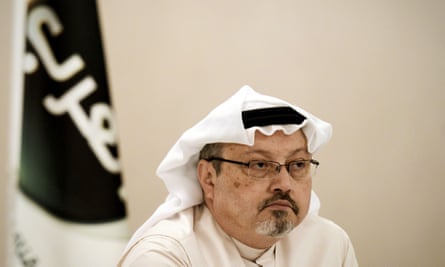
Obscured by these weighty considerations is the dismaying extent to which Trump is legitimising and boosting anti-democratic, authoritarian Gulf regimes notorious for institutionalised misogyny and human rights abuses. His Saudi visit completes the undeserved rehabilitation of Salman after the 2018 murder of journalist Jamal Khashoggi.
The expanding power and influence of the Gulf states is an inescapable fact of 21st-century geopolitical and economic life. Yet when discussing vital questions of Middle East peace and security, how extraordinary that a bunch of entitled, unelected autocrats is showing a US president how to do the right thing. If Trump were a braver, more honest man, he would go to Gaza next week and see for himself the devastation he and his far-right allies have wreaked.
He will not do so. That Trump is no gentleman is common knowledge. It’s plain he’s no statesman, either.
-
Simon Tisdall is a Guardian foreign affairs commentator

.png) 21 hours ago
6
21 hours ago
6


